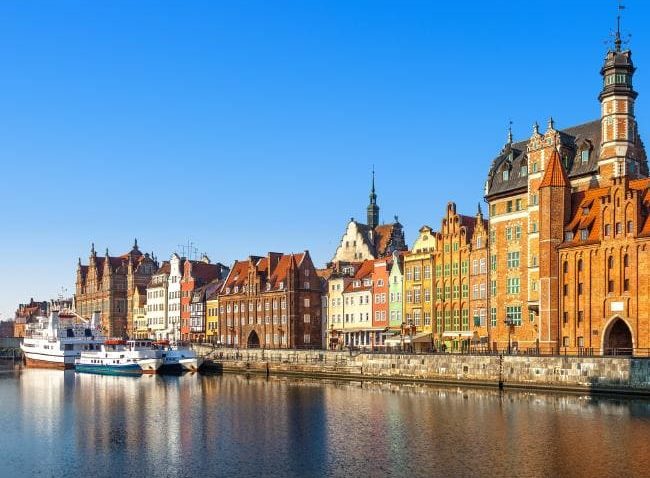Compiled by Eva Jovanova and Hristo Voynov
1. After Macedonia changed its name into North Macedonia, a new challenge for the country arose. The Greek Prime Minister Alexis Tsipras and his minority government survived a confidence vote in the Greek Parliament by a very small thin margin, as only 151 of the 300 MPs voted to support him. The vote on ratifying the name agreement with Macedonia is scheduled for next week, and it is expected to be a similar call.
2. The US has all but decided to pull out of its INF (Intermediate-Range Nuclear Forces) treaty with Russia over claims that Moscow is not allowing proper verification of its new missile system under the treaty’s requirements. This raised fears in Moscow that the US will also withdraw from the New START treaty, which limits intercontinental ballistic missiles, among other powerful weapons. Russia has also stated that the US is pushing away from these treaties in order to increase its military presence in Europe, so it could deploy missiles that would target Russia within a closer range.
3. Serbian President Aleksandar Vucic welcomed the Russian President Vladimir Putin amidst the greatest anti-Vucic protests. For the seventh week in a row, protesters shake the streets chanting slogans against Vucic’s authoritarian government. Putin’s visit this Thursday emphasized Vucic’s sitting between two stools – the EU and Russia. Putin did not refrain himself from fuelling ethnic tension in the Balkans, as he criticized Kosovo’s decision to form an army.
4. The European Parliament voted in favor of stripping funding from countries accused of violating the rule of law. This will hit Hungary the most, as Poland has reversed the most controversial judicial reforms it was trying to implement. In a seemingly minute retaliatory effort, Hungary has decided to pick a fight with Austria over its issue of benefits for family members of workers posted abroad because Austria lowered the benefits pay to foreign workers to match their home country. Hungary says this is done to ensure the rights of Hungarian workers, but this goes against its stated core belief of sovereignty and state rights within the EU.
5. Croatian President Kolinda Grabar-Kitarovic met with her Turkish counterpart, Recep Tayyip Erdogan, in Ankara this Wednesday. In a joint conference after the meeting, they both agreed that Dayton, the agreement that put an end to the war in Bosnia and Herzegovina, was outdated and should be revised. While Erdogan claims that Bosnia is in a deadlock because of the Dayton, Grabar-Kitarovic sees Dayton’s revision as a way for the Croat ethnicity, which she believes to be marginalized, to gain more rights.
6. Poland was shocked when the mayor of Gdańsk, Paweł Adamowicz, was stabbed onstage at a charity event and later died of his injuries. The perpetrator of the attack was a repeat offender who had previously spent time in prison over armed robberies, who claimed onstage that he was wrongly imprisoned and tortured by the mayor’s Civic Platform party when it was in power. The attacker is likely to spend the rest of his life in prison.
7. A Kosovo film will be aired at this year’s Berlinale. The short film “In Between,” directed by Samir Karahoda, with a budget of only €13.000 is Kosovo’s debut in international film festivals. The film looks into the family relationship and solidarity of two brothers who decide to migrate. This year’s Berlinale will take begin on February 7, and during the ten festival day, film fans in Berlin can enjoy 24 films from 17 countries, that will compete for one of the three main awards.
8. With the Moldovan parliamentary elections coming up in just under a month, some are worried that new changes to the system and a recent history of electoral issues will complicate the results. This includes the US, which put out a statement urging authorities to ensure a fair and free election. Multiple issues have been raised, before the official campaigning month even starts on the 25th of January, such as the competing candidates Andrei Năstase and Andrei Nastas whose names may result in mistakes with many voters. Greater issues raised include half of a million voters with expired passports, which may complicate their ability to vote.
9. Albanian Prime Minister, Edi Rama, called the US Congress-funded Voice of America a media that is “broadcasting from the garbage bin.” VoA had published a story that Rama’s party is manipulating hiring in the prison system. Edi Rama’s policies are kept under the vigilant eye of multiple international media watchdogs, after his attempts to curb media freedom by introducing fines for online media outlets were met with sharp criticism from international organizations, and especially from the EU.
10. Infamous Belarusian Anastasia Vashukevich, known as Nastya Rybka, who has ties to Russian oligarch Deripaska, was released from a Thai prison where she was held for hosting a sex-themed lecture series. While in prison, she claimed she had vital information regarding Russian efforts to influence the US elections and tried to get asylum in the US. She was deported to Russia, where she was immediately detained under the charge of recruiting for prostitution. Belarus is said to be monitoring her arrest as she is a citizen, but her future remains largely uncertain.


0 comments